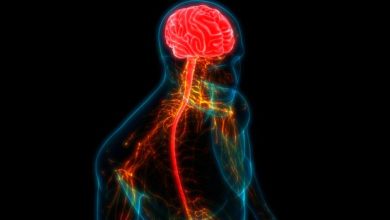Seven Types of Pain You should Never Ignore
Experiencing pain is a part of life—whether it’s from injury, illness, or everyday activities like exercising or gardening. For many of us, mild pain will often subside on its own, and medical intervention may not be necessary. However, there are certain types of pain that should never be overlooked. If you experience any of these, it’s important to seek medical attention as soon as possible. Here are seven types of pain you should never ignore:
1. Burning Pain or Numbness in the Legs or Feet
A burning sensation or numbness in your legs or feet could be a sign of neuropathy, particularly diabetic neuropathy. Neuropathy can occur due to high blood sugar levels and is often associated with diabetes. According to the American Diabetes Association, about a quarter of people with diabetes are undiagnosed.
Other symptoms of diabetes may include:
- Dry mouth
- Constant thirst and hunger
- Itchy, dry skin
- Slow-to-heal wounds or cuts
- Frequent urination
- Blurred vision
If you experience burning, tingling, or numbness in your legs or feet, and you notice any of the above symptoms, it’s crucial to talk to your doctor. Early detection and treatment can help manage the condition and prevent further complications.
2. Unexplained, Persistent Pain in the Chest, Throat, Jaw, Arm, or Belly
While most of us associate chest pain with heart problems, it can also manifest as discomfort in other areas such as the throat, jaw, arm, or stomach. Pain in these areas could signal underlying cardiac issues, including heart attack. Some individuals mistakenly attribute these symptoms to non-cardiac causes, such as acid reflux.
If you experience persistent or unexplained pain in any of these areas, particularly if you’re at high risk for heart disease, it’s essential to see a doctor immediately. Early intervention can be life-saving.
3. Severe, Unrelenting Headache
Headaches are common, and many of them can be attributed to factors like dehydration, sinus congestion, or stress. However, if you experience the worst headache of your life, or one that doesn’t subside despite rest and hydration, it may indicate a serious condition like brain bleeding, which requires immediate medical attention.
If your headache is accompanied by nausea, vomiting, or vision changes, it’s important to consult a healthcare professional right away to rule out any severe underlying issues.
4. Sudden or Persistent Back Pain
Back pain is a common complaint, often resulting from poor posture, long periods of sitting, or physical activity. However, sudden or intense back pain, particularly in the lower back or between the shoulders, could signal a tear in the aorta, the large artery that carries blood from the heart. This tear, known as an aortic dissection, is a medical emergency that requires immediate treatment.
If you experience unexplained back pain and have risk factors such as high blood pressure, smoking, or diabetes, it’s critical to seek medical help without delay.
5. Extreme Abdominal Pain
Sharp, sudden abdominal pain should never be ignored. Conditions such as gallstones, pancreatitis, ulcers, or an inflamed appendix can cause severe discomfort and require urgent treatment. These conditions may need medication or surgery to prevent complications.
If you experience extreme abdominal pain, especially if it comes on suddenly, visit your doctor to rule out any serious underlying health problems.
6. Pain or Swelling in the Calves
While a mild calf cramp is a normal occurrence, swelling or persistent pain in the calves can be a sign of deep vein thrombosis (DVT), which occurs when a blood clot forms in one of the deep veins of the leg. If the clot breaks free and travels to the lungs, it can cause a life-threatening condition called pulmonary embolism.
If you notice swelling, redness, or warmth in your calf, or if you’ve recently been on a long flight (a known risk factor for DVT), it’s essential to seek medical attention to rule out this serious condition.
7. Unexplained or Odd Chronic Pain
If you experience vague, unexplained, or chronic pain that doesn’t have an obvious cause, it could be linked to depression. Depression can cause physical symptoms, including pain that doesn’t appear to have a medical explanation. If you’re experiencing persistent pain without a clear cause, and you’re also feeling down, losing interest in activities, or having difficulty functioning, it’s important to talk to a healthcare professional. Depression is treatable, and seeking help can improve both your physical and mental well-being.
In conclusion, while not all pain requires immediate medical attention, certain types of pain can signal serious health issues. If you experience any of the pains mentioned above, it’s important to consult with your doctor for a thorough evaluation. Addressing these issues early can significantly improve your outcomes and overall health.












